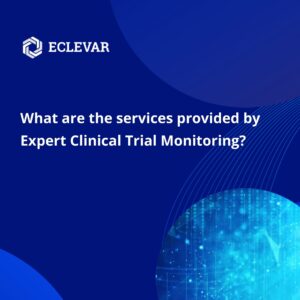Expert Clinical Trial Monitoring Services
Clinical Trial Monitoring plays a crucial role in ensuring the well-being of participants and evaluating the effectiveness of treatments in clinical studies. To ensure objectivity and expertise, this critical task is typically carried out by an independent physician with relevant knowledge and experience in the specific field of study.
Safety monitoring extends beyond just identifying adverse events, it involves ongoing monitoring and follow-up until the resolution of these events. For such an important part of a research process, it is most indicated that the organization responsible for performing it presents an experienced and knowledgeable team, ready to fit your trial needs.
Through diligent and timely Clinical Trial Monitoring efforts, studies can gather crucial data that contributes to the advancement of medical knowledge and the development of safe and effective treatments.
The importance of Clinical Trial Monitoring
Clinical trial monitoring is an essential component of conducting successful trials, ensuring participant safety, data quality, and trial integrity. Both independent organizations and government-funded agencies like the National Institutes of Health (NIH) and the World Health Organization (WHO) have established standards and requirements for data and safety monitoring protocols, particularly for Phase I and II clinical trials.
The responsibility for data and safety monitoring varies depending on the phase of the study and can be carried out by sponsor or Contract Research Organization (CRO) staff, contractors, or the principal clinical investigator/project manager overseeing the study. Regardless of the approach taken, monitoring must be conducted regularly, with the sponsor holding the ultimate responsibility for overseeing the activities.
The primary objective of clinical trial monitoring is to observe each trial site and ensure compliance to the standard operating procedures outlined in the trial protocol. Any deviations from the investigation plan must be reported and managed promptly.
Clinical trial monitors (known by many titles like Clinical Research Associate, “on-site” monitor, Clinical Research Monitor, Study Site Monitor, or Quality Specialist) are responsible for executing the monitoring plan established by the sponsors and investigators. The number of clinical monitors employed depends on the scale and scope of the trial.
In most cases, field monitoring necessitates regular visits by the clinical research associate to the trial site throughout the study’s duration. Occasionally, for simple and low-risk studies, monitoring activities can be conducted primarily through telephone communication, except for initial startup and closeout visits. However, it’s crucial to establish clear definitions and guidelines for determining what constitutes a “low-risk” study within internal policies and procedures.
Considerations for the design of Clinical Trial Monitoring
When designing monitoring plans for clinical trials, many considerations come into play to ensure an effective and tailored approach. Some of the factors that influence the design of monitoring plans include:
Complexity of the protocol
The complexity of the trial protocol, including factors such as the presence of special populations within the sample groups, the level of toxicity associated with the treatment, the duration of treatment, and the extent of interaction required with participants, all impact the design of the monitoring plan. More complex protocols may necessitate more frequent and comprehensive monitoring activities.
Risk of the treatment
The level of risk associated with the investigational treatment influences the intensity and frequency of monitoring. High-risk treatments may require more rigorous monitoring to promptly identify and address any adverse events or safety concerns.
Disease being evaluated
The nature of the disease under research can impact the monitoring plan. Different diseases may require specific monitoring strategies to capture relevant data or evaluate specific endpoints.
Number of study subjects enrolled at the site
The number of participants enrolled at a particular site can influence the monitoring plan. Larger sites with a higher number of participants may require more extensive monitoring to ensure adequate oversight and data quality.
Number of treatment sites
The number of treatment sites involved in the clinical trial, such as multiple clinics or centers, affects the monitoring plan. Each site may require monitoring visits to assess compliance with the protocol and ensure consistency in data collection and reporting.
Site performance
The performance of individual sites in terms of compliance with protocols, data quality, and participant recruitment and retention rates is a crucial factor. Sites with lower performance may require more frequent monitoring visits and additional support to address any issues and maintain trial integrity.
Sponsor monitoring standard operating protocols
The monitoring plan should align with the sponsor’s standard operating protocols, which outline specific monitoring procedures and guidelines. These protocols ensure consistency across trials conducted by the sponsor and help maintain quality and compliance.
Eclevar – Outstanding CRO services for Clinical Trial Monitoring
From the many sources mentioning monitoring of clinical trials, the purpose of monitoring can be sumarised simply as keeping participants safe and respecting their rights, having data we can trust, making sure the trial is being run as it was meant to be, improving the way the trial is run and preventing problems before they happen.

